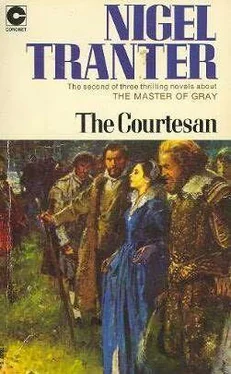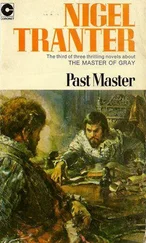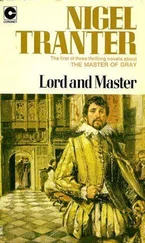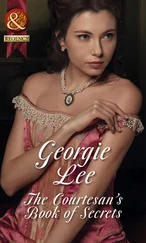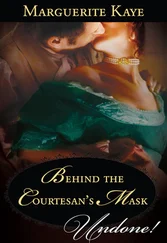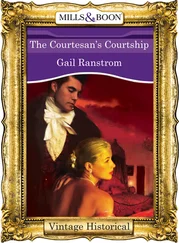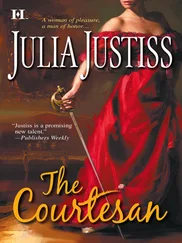Nigel Tranter - The Courtesan
Здесь есть возможность читать онлайн «Nigel Tranter - The Courtesan» весь текст электронной книги совершенно бесплатно (целиком полную версию без сокращений). В некоторых случаях можно слушать аудио, скачать через торрент в формате fb2 и присутствует краткое содержание. Жанр: Исторические приключения, на английском языке. Описание произведения, (предисловие) а так же отзывы посетителей доступны на портале библиотеки ЛибКат.
- Название:The Courtesan
- Автор:
- Жанр:
- Год:неизвестен
- ISBN:нет данных
- Рейтинг книги:4 / 5. Голосов: 1
-
Избранное:Добавить в избранное
- Отзывы:
-
Ваша оценка:
- 80
- 1
- 2
- 3
- 4
- 5
The Courtesan: краткое содержание, описание и аннотация
Предлагаем к чтению аннотацию, описание, краткое содержание или предисловие (зависит от того, что написал сам автор книги «The Courtesan»). Если вы не нашли необходимую информацию о книге — напишите в комментариях, мы постараемся отыскать её.
The Courtesan — читать онлайн бесплатно полную книгу (весь текст) целиком
Ниже представлен текст книги, разбитый по страницам. Система сохранения места последней прочитанной страницы, позволяет с удобством читать онлайн бесплатно книгу «The Courtesan», без необходимости каждый раз заново искать на чём Вы остановились. Поставьте закладку, и сможете в любой момент перейти на страницу, на которой закончили чтение.
Интервал:
Закладка:
The next news made Lord Gray wish even – without saying so – that he had been perhaps a little less hasty. It was that the King, as counter to the northern situation presumably, and as something to occupy the remnant of his Protestant forces, had personally marched them westwards along his own Border, to attack, capture and destroy the great castle of Lochmaben in Annandale, ancestral home of his heroic predecessor Robert Bruce and now held by the Catholic Lord Maxwell as hereditary keeper. As a politic gesture he had hanged its captain and six other Maxwells. Whatever the reasons for this flourish, James's first military exploit – and it was variously reported that it was to please Elizabeth, who, with no Armada appearing, it would be wise to keep well-disposed; that it was to keep the Kirk quiet; that it was to warn Huntly and the Northern Catholics not to move too far south – whatever the reasons, the Lord Gray could have wished to have been present, for Annandale was a rich land, and the sacking thereof could hardly have failed to be profitable for those engaged.
It was all difficult and confusing in the extreme. A man could scarcely tell which way to turn, to best advantage.
Then, on the very last day of the month of July, something more substantial than tidings and rumours reached Castle Huntly. All that boisterous day ships, great ships such as had never before been seen in Scottish waters, were to be observed all along the east coast, heading northwards in ones and twos and straggling groups, before an unseasonable south-easterly gale, weather-worn, battered, sails rent and shredded, top-hamper askew. One great galleon indeed, limped in through the gap in the long roaring sand-bar of Tay, and let down her anchor off Lord Gray's castle of Broughty which guarded the estuary, the rich colours and banners of Castile torn but still flying proudly from her soaring aftercastle and broken foremast. She sought provisions, water, care for her wounded, and time to effect repairs. My lord was sent for in haste the dozen miles from Castle Huntly. He found a Spanish marquis, a round dozen dons, and no fewer than two hundred soldiers of the Duke of Parma's Netherlands army aboard, as well as the crew, all armed to the teeth, though with many wounded and much damage apparent, not all of it caused by the storm. The Santa Barba del Castro had, it seemed, put into the Tay in error, mistaking the estuary and assuming that Dundee town was Aberdeen.
My lord was in something of a pickle. Nominally at least he was a staunch Protestant and a strong supporter of Christ's Reformed Kirk. These were notorious Papists, and therefore anathema. On the other hand, he was not sure whether they were in fact allies of his King or enemies, at this precise moment – depending on whether Philip was treating with James or not. James admittedly was anxious to accept a large sum in gold from Elizabeth for denying port facilities to the Spaniards – but then it was well-known that the gold had not yet been paid, and the Tudor woman's promises were markedly unreliable. Moreover, this galleon mounted three tiers of cannon on either side – fifty-two guns, fully five times the number available on Broughty Castle's battlements – and disposed of more armed manpower than Gray could raise in a month. He compromised, therefore, very sensibly, supplying provisions and water, and timber for rough-and-ready repairs, but permitting no landing of wounded and only two days anchorage – thereby enriching his coffers by a sizeable quantity of gold ducats and some quite excellent silver plate.
So Scotland became aware that the long-delayed and much-dreaded Armada of Spain was in fact over, a thing of the past, a cloud dispersed – and unlike neighbouring England which went crazy with joy, did not know whether to be relieved or disappointed. As details gradually became known, and the size of the disaster to Spanish arms was assessed, so grew the realisation that England, the Auld Enemy, released at last from the bogey and spectre that had haunted her for years, was likely to prove a still more arrogant and dangerous neighbour than heretofore, and Elizabeth more interfering than ever. King Jamie saw his promised gold melt away for sure, and the English dukedom with which Elizabeth had also tempted him at the same time evaporate into thin air. Even the public and long sought-for announcement that he was evident, lawful and only heir to the said ageing Queen, now that Mary his mother was dead, was clearly postponed once again. The deceived and ill-used young man left his Borders and returned to Holyroodhouse and his capital in a state of deep depression.
At Castle Huntly, at least, there was no such depression. My lord had done better out of the Armada than most. David Gray heaved a profound sigh of relief, for not only was the threat of Spanish interference removed, but civil war likewise, for Huntly and his friends in the north promptly saw the light of reason and dispersed their rising as though it had never been. The Irish-Highland venture still went on, but that was far away. His brother Patrick's conspiracy, if such it had been, was surely brought to naught, exploded, blown away on the south-easterly gale – for which the good God be praised! And Mary Gray each night at her maidenly bedside thanked the same much-invoked God that the Holy Office and Inquisition would not be established on the Castle-hill of Edinburgh – but besought Him fervently at the same time that He would bring her Uncle Patrick home to Scotland just as quickly as it was celestially possible. Ludovick, Duke of Lennox was adjured likewise to entreat the Thrones of both Heaven and Scotland in the same cause. Patrick Gray it was who had brought the ten-year-old Ludovick from France to James's Court on his spectacular father's death.
Alas for the prayers and devotion of youth and innocence -the Master of Gray's stock had seldom been lower, his acceptability in circles of government more improbable. The Armada might almost have been entirely his own invention, and the unusual gales which had first delayed the fleet for six weeks, then harassed it in the narrows of the Channel, putting it at the mercy of the lighter and better-handled English ships, before finally breaking it up in major disaster and sending its dispersed vessels scudding north-about right round Scotland and Ireland as the only way of getting back to Spain – these gales might have been of the Master's personal devising. James, mourning his lost gold and duchy, even his unpaid pension from Elizabeth not received for months, was in no state to lend his ear to even Vicky's pleas. Instead he listened rather to the creaky voice of his wily lawyer-like Chancellor Maitland, who had lain notably low during all these alarms and excursions and now emerged again, like a tortoise from its shell, for the proper running and weal of the realm. And the King had spoken truly when he had declared that the Chancellor and the Master of Gray did not love each other. Sir John Maitland, as all at Court knew, never ceased to bewail that the beheading of the said malefactor had not gone off as planned – as he had so efficiently planned. And that was the bastard Davy Gray's fault.
Almost it seemed, indeed, as though God Himself was against the unfortunate exile in foreign parts. Only a short time after the Armada fiasco, the powerful de Guise brothers, Henry the Duke and Cardinal Louis, Archbishop of Rheims, full cousins of the late Mary of Scotland, were assassinated by order of Henry Third of France. These had been Patrick Gray's potent protectors and supporters for years, the source of much of his influence, employment and funds on the Continent. Without their far-reaching Jesuit backing, Europe was going to be a very different place for their gallant and handsome protege.
If the Reformers' stern God was going to take a denominational hand, of course, then the Master of Gray was not the one to fly in the face of destiny. Not even his worst enemy had ever suggested, however he might miscall him, that he was apt to do such a thing… once destiny made its intentions reasonably clear. Destiny might always be gently aided and piloted, however, along its chosen course, contrary though that might be, by a philosophical and agile-minded man. Such a man as Patrick Gray.
Читать дальшеИнтервал:
Закладка:
Похожие книги на «The Courtesan»
Представляем Вашему вниманию похожие книги на «The Courtesan» списком для выбора. Мы отобрали схожую по названию и смыслу литературу в надежде предоставить читателям больше вариантов отыскать новые, интересные, ещё непрочитанные произведения.
Обсуждение, отзывы о книге «The Courtesan» и просто собственные мнения читателей. Оставьте ваши комментарии, напишите, что Вы думаете о произведении, его смысле или главных героях. Укажите что конкретно понравилось, а что нет, и почему Вы так считаете.
